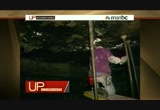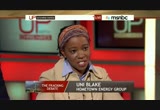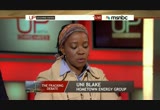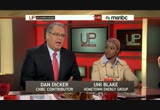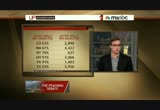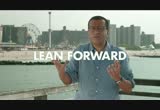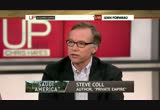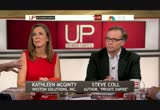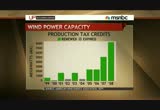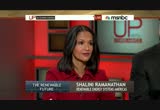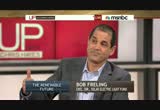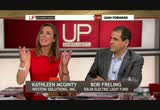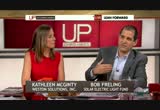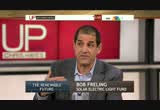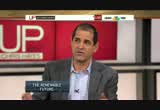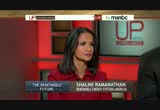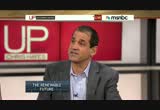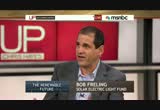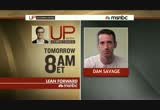tv Up W Chris Hayes MSNBC December 8, 2012 5:00am-7:00am PST
5:00 am
5:01 am
giving judicial immunity to the military as it quells protests there. demonstrators are marching in cairo to protest his attempt to push through a new constitution written by his allies. charlie crist the former governor of florida announced late friday he's officially joining the democratic party. right now i'm joined by dave roshlgts a staff writer covering energy and policy, tanya fields, dan dicker, author of oil he's endless bid, taming the unreliable price of oil to secure our economy, a cnbc contributor and union blake director of strirmtal affairs for hometown energy group, independent energy consulting firm with clients in the oil and gas industry. republican senator rand paul of kentucky on wenz lambbaased the actress ashley judd report
5:02 am
considering a run for senate there. he said her opposition to one industry in particular would doom her candidacy. >> she's way damn to liberal for our country and state. she hateses or big heest industry, coal. good luck bringing the i hate coal message to kentucky. >> it shows a misunderstanding of his own state's economy. according to data from the bureau of economic analysis, mining is only the 13th largest industry in kentucky by gdp. manufacturing is at the top of the list. if you go by jobs, mining is anl 15th in the state. health care is at the top of list with eight times the number of workers. paul's claiming are flat wrong, but they show a deep anxiety and defensiveness about the coal industry on the wane in america. today coal provides a third of the power down from nearly half four years ago.
5:03 am
coal-burning power plants are shuting down across the country. there's a war on coal as you may have heard during the campaign, but the aggressors aren't bureaucra bureaucrats but it's natural gas. specifically the technology radically transformed natural gas production something called hydraulic fracturing or fracking. the name is opaque but the goal is simple. tens of thousands of feet below the surface there are deposits of natural gas trapped up within giant rock formations. fracking lets energy companies drill down to release the gas. that process has fundamentally revolutionized america's energy economy in a few years. the average annual price of natural gas is less than half what it was in 2008. large swaths of the united states from colorado to texas to ohio to upup state new york have massive natural gas reserves making them right for fracking. rhetts rebel based on concerns about health and the safety of
5:04 am
the process. those battles may decide the course of america's energy economy over the next century. i think there's a real mismatch between the amount of -- between the scale of the change happens in america right now because of the fracking boom and the amount of intense con stern nation, debate, and politics around the local level on the amount of coverage it gets naturally. it happens under the radar. natural gas, the natural gas revolution that's happening right now is -- you're someone that works in the energy sector. you're a trader in the energy secreta sector. it's transforming it. >> it's new. you need to say that clearly. it's in its absolute infancy. deep fracking they're doing now really only began in 2007 in texas, and it's been moved quickly into the major place. so we've gotten at a very strange kind of movement in the time line of fracking.
5:05 am
it's run almost haphazardly in three different directions from the industry, which has gone into a land grabow nan. >> and much regulation and oversight. i'm not saying what's been done has been badly done. most of it has been well-done, but there's bad examples of bad wells fracked out there. what it is is it's going at a break neck pace trying to capture what is what you say is a book that's just begun. >> dave, i guess at the top line you say, look, there's this huge, plentiful source of energy. here's the president talking about fracking and its promise in ohio in july. >> not only are we blessed with incredible natural gas resources that are now accessible because of new technologies, but natural gas actually burns cleaner than some other fossil fuels and is
5:06 am
an ideal fuel energy source that we potentially can use for the next 100 years. there are a lot of folks right now that are engaging in hydraulic fracking doing it safely. the problem is we haven't established clear guidelines for how to do it safely and informed the public so that neighbors know what's going on. you know, your family, you can make sure that any industry that's operating in your area, that they're being responsible. >> yeah. part of the fracking being so new, like you said, especially deep fracking being so new is there's a lot we don't know about it. it does burn cleaner than coal in power plants. that's pretty uncontested, but if you go look at the methane released by fracking and by transporting this stuff through pipeline there's a lot of
5:07 am
methane released, and it's a powerful greenhouse gas in terms of co2. the balance of climate change between natural gas and coal is still somewhat a question mark. it looks based on most science we have now cleaner than coal, but we just don't know. we don't know a lot about the local impacts and how long these prices stay low or how long the wells last. there's a lot wi don't know about it, and it's moving so quickly. i think that's why you see a lot of of this. >> there's a lot of fear. >> and you're someone who is familiar with this. you live in upstate. you consulted for the oil and gas industry and you're a toxicologist, right? what are the fears you hear, and what's yue feeling about how people are understanding the process? >> people are not understanding the process at at all. the information is out there. the industry has been doing this for a while. they have the information, but the problem is a lot of people don't believe what the industry
5:08 am
says. so even if the industry -- >> which is not ridiculous. let me just say it for the record, right? this is just as a basic kind of -- i think you're right. what ends up happening is you get this debate, right? the natural gas company says x and a group of activists say y, and i as a third party entering into this, i say the natural gas company has hundreds of millions if not billions of dollars on x being the case. i'm going to view it a little skeptically. >> i understand what you're saying, but if you want a solution to a problem, sometimes you have to look within. the industry has spent a lot of years doing research on a lot of of these issues. you go to spe. they do an annual conference, and they have a lot of information there, a lot of reports about health issues, about water issues. problem is, again, nobody wants to believe what the industry is saying. so you have the environmentalists putting their reports out, and then you have the industry saying, well, we don't want to believe what
5:09 am
you're saying either. we're at a really bad impasse. at some point we have to come together and decide what is and what is not. >> the people don't -- you say they don't believe what the industry is saying, as if we were all inherently naturally skeptics if there's not a history to lend to that. we have people in towns whose water is flammable, whose livestock are delivering calfs and breeds that die before the year is over. disproportionately two instances before there was fracking, right? this country has a long history in terms of the industry dominating and saying one thing, and people actually putting their trust that what they say is the truth and turning around sxending up with billions of dollars in public health issues degradation of their environment, disinvestment of their local economic development. of course, i wouldn't believe what you said. you're asking the fox to watch
5:10 am
the henhouse essentially. so there is a lot of investment in telling people, you know -- not telling them anything, right? chemicals are looked at like trade secrets, so you put tons of chemicals potentially into the water table, and you're not telling them because it could help the competition. >> look. there are real environmental challenges with fracking. they are real. they are measurable. we are getting a handle on these, but the idea that they are infecting water tables is a bit overwrought. we've had 40,000 fracked in the country. the epa has has found one example of some sort of water table activity in wyoming. even they're not sure about that one. it seems the water table -- now, a greenhouse gas effect of loose methane, that's real. in terms of water that'sle coming up, recyclable water
5:11 am
that's coming up at brine after the process is real. we have to separate what's real from the fake ones. you know what i'm saying? >> let's do that. i think there's a bunch of stuff on the table, right? it's a complicated process, and it's a scary process in the fact that these are areas that, you know, west texas is used to energy extraction, right? southeast pennsylvania is not necessarily used to it or upstate new york, right? you have this it industry coming in. i want to step through these different risks because i think there are risks and there's a mix of anecdotal fear and they're grounded reason to be skeptical about a lot of processes. let's sort of dive deep into that right after we take this break. how does this thing work? oh, i like it! [ garth ] sven's small business earns 2% cash back on every purchase, every day! woo-hoo!!! so that's ten security gators, right? put them on my spark card! why settle for less?
5:12 am
testing hot tar... great businesses deserve great rewards! [ male announcer ] the spark business card from capital one. choose unlimited rewards with 2% cash back or double miles on every purchase, every day! what's in your wallet? here's your invoice. maybe you want to incorporate a business. or protect your family with a will or living trust. and you'd like the help of an attorney. at legalzoom a legal plan attorney is available in most states with every personalized document to answer questions. get started at legalzoom.com today. and now you're protected.
5:13 am
5:15 am
it's all settled out, but that's what our water looked like. >> that came out of the tap? >> out of the tap. >> so in three weeks they contacted mike by phone and said, we've tested your water. there's nothing wrong with your water. >> with this? >> with this. there's nothing wrong with the water that can be affected by the oil and gas production in your area. >> whoa, jesus christ. >> that's the iconic moex from the "gasland" documentary. it's incredibly effecting. you made it this point about water contamination. you're drilling down. there's the water table. you are fracturing the shale. the aquifer tends to be much, much higher in the earth than where the fracking is happening. a mile maybe, but the question of ground water contamination looming large, and i want to get
5:16 am
your sense of where your -- the spektor of ground water contamination. >> time has said a lot of things, and a lot is based again on misinformation. we live over shale, and this is a gas-producing shale. i have tested water in osego county, and 20% of the water tested with no gas drilling occurring already has methane in it. there have been people lighting their faucets in our area for a long, long time. ask any of the old people na live in the area. it's something they did as kids. it was fun. so the methane is in the water. >> let me say this, and this is an important note. i don't want to litigate "gasland" too much. they did a follow-up investigation into some of the examples -- in three of the instances shown in "gasland" and they said the met thain was a natural biogenic methane.
5:17 am
in one of them the department of natural resources found it was due tie poorly structured well. a poorly constructed well with improper casing, the disposal of the wastewater that comes up about the mills of gallons and sits there anyway toxic pool and has to be transported out pour put somewhere, right? if you don't do it, you can get massive contamination. >> i think the definition of the word "toxic," a toxic pool or cocktail, toxicity is a combination of many different things, okay? number one, toxicity is the length of exposure, how long are you exposed to if? number two toxicity is a concentration thing. toxicity is also, you know, is it chronic? is it acute? if you sit here drinking coffee, are you drinking a toxic solution. do you consider yourself coffee
5:18 am
toxic? >> i sort of do, but continue. >> worth it. >> caffeine has an ld-50 of 190. half the critters will die if given caffeine. one of the toxic chemicals has an ld-50 of 143. the whole point is it's all relative. >> if you went to the folks in the marcellus shale upstate and said we're swapping out the fracking chemicals we use with coffee and have 8 million gallons of coffee sitting around, no one would be psyched about that either. that's the point. the volume of what you're talking about is on a scale that is -- that is worrisome to people. >> can we put toxic out of the conversation. >> i think we should. let me push back a little bit. we're talking about this as it if it's the end-all be all. president obama said we could do
5:19 am
it for 100 more years. but we act as there's no other alternatives that we ignored and did not put the proper resources into looking at. we're not looking at making sure that we have a country that really is focusing on energy efficiency, looking at real clean energy that's renewable energy. that doesn't make as much money as natural gas, right? it also doesn't open up the same kind of economic development benefits for folks when we talk about green jobs. like you said, it's all relative. that's an important point. >> this is also interesting. what the fracking boom is doing to the price of natural gas -- i think the idea is the price comes down and that's good for consumers and energy is cheaper. it's having a hot of knock-on effects, that dmin yags of price. >> it's a point worth making. it's true it takes place well below the water table. what you have is very slow dishe pergss and low concentrations
5:20 am
and extended contact. we just don't know a lot about that. there's a big question mark there. >> yes, we do. yes, we do. >> some of it -- look, some of the things we know. we know some of the chemicals in there. >> they refuse it to -- >> here's an example of this. >> yes, we do. >> they pumped a mixture of chemicals in a half-dozen oil wells in texas in july. this is from broloomberg. one ingredient can cause damage to the liver and kidneys. that means they're exempt from dishe closure. drilling companies in texas claim similar exexemptions about 19,000 teams this year through august. as a matter of fact, there are chemicals put in the ground that are not disclosed because they're trade secrets. >> part of the legislation is designed to make these transparent by the way. in the next year you see transparency entirely in
5:21 am
whatever cocktails they throw down the wells. yoj that they're so proprietary and even the oil companies said they're not so much that they can't put up. >> all the companies are spying on each other all the time. who are they kidding? they all know. >> a company could not do any work in new york state without disclosing what chemicals they're going to use. the dec will not issue any permits unless the dec knows what chemicals are in the proprietary mixtures. coke has chemicals in it. you don't know the different amounts of the chemical. >> what are the requirements under the dec? it seems that part of the problem is also regulation, right? there is a fear that this is being inadequately regulated or nowhere near, you know, regulated enough. i want to talk about that and talk about the solutions here. there are some people who think there should be a ban like in
5:22 am
france. there are others that think you can do this in the regulatory margins. let's talk about that when we come back. in keeping the denture clean. dentures are very different to real teeth. they're about 10 times softer and may have surface pores where bacteria can multiply. polident is designed to clean dentures daily. its unique micro-clean formula kills 99.9% of odor causing bacteria and helps dissolve stains, cleaning in a better way than brushing with toothpaste. that's why i recommend using polident. [ male announcer ] polident. cleaner, fresher, brighter every day. but they haven't experienced extra strength bayer advanced aspirin. in fact, in a recent survey, 95% of people who tried it agreed that it relieved their headache fast. visit fastreliefchallenge.com today for a special trial offer. who have used androgel 1%, there's big news. presenting androgel 1.62%. both are used to treat men with low testosterone. androgel 1.62%
5:23 am
is from the makers of the number one prescribed testosterone replacement therapy. it raises your testosterone levels, and... is concentrated, so you could use less gel. and with androgel 1.62%, you can save on your monthly prescription. [ male announcer ] dosing and application sites between these products differ. women and children should avoid contact with application sites. discontinue androgel and call your doctor if you see unexpected signs of early puberty in a child, or, signs in a woman which may include changes in body hair or a large increase in acne, possibly due to accidental exposure. men with breast cancer or who have or might have prostate cancer, and women who are, or may become pregnant or are breast feeding should not use androgel. serious side effects include worsening of an enlarged prostate, possible increased risk of prostate cancer, lower sperm count, swelling of ankles, feet, or body, enlarged or painful breasts, problems breathing during sleep, and blood clots in the legs. tell your doctor about your medical conditions and medications, especially insulin, corticosteroids, or medicines to decrease blood clotting.
5:24 am
talk to your doctor today about androgel 1.62% so you can use less gel. log on now to androgeloffer.com and you could pay as little as ten dollars a month for androgel 1.62%. what are you waiting for? this is big news. what are you waiting for? well, if itmr. margin?margin. don't be modest, bob. you found a better way to pack a bowling ball. that was ups. and who called ups? you did, bob. i just asked a question. it takes a long time to pack a bowling ball. the last guy pitched more ball packers. but you... you consulted ups. you found a better way. that's logistics. that's margin. find out what else ups knows. i'll do that. you're on a roll. that's funny. i wasn't being funny, bob. i know. ♪ don't know what i'd do ♪ i'd have nothing to prove ♪ i'd have nothing to lose [ male announcer ] zales is the diamond store. take an extra 10 percent off storewide, now through sunday.
5:25 am
we're talking about fracking which is an incredibly pitch battle. it's transforming economics in the country and transforming many local landscapes places that are farms or little league fields now sporting wells. there's a rush of capital into natural gas. i think in 2011 i want to say five of the top ten performing stocks were associated with natural gas extraction. it's true. look it up. >> not the ones that i own. >> there's lots of fears about what its environmental effects will be, what the health effects will be. we're trying to tease through some of that. we're talking about water contamination and my sense of the literature here is that the ground water contamination through the fracking process itself has been documented in extremely rare cases. but contamination of water because you have all this wastewater, right? i won't call it toxic.
5:26 am
you have a wastewater that is a slurry he of things you don't want to opt to put into your body, and you have millions of gallons of it. you have to do something with it. you have to truck it out or let it sit there and essentially off-cycle i guess. what you do with that. also, you come back to this -- we're talking in the broad sense about a risk profile and about regulation, right? deep water drilling is safe, right, when done correctly. it's fine until it's not done correctly. we've all seen what it looks like. there's a question. let me give you a stall stick here. active oil and gas inspectors per well in 2010 by state. this is the amount of active wells there are per inspector, okay? the percentage of wells inspected. in colorado 53% were inspected and there were 3,000 wells per inspector. in a state like pennsylvania, 91% and 1400 were inspectors. even in the best states, new york actually is in the top there in terms of the number of
5:27 am
wells per inspector. there is this broad question about whether we believe. it gets down to this trust issue, right? if you say theoretically this can be done safely under the right conditions, there's this basic trust question about do you trust our political system to bring about those conditions? >> yeah. you know, the story of what happens when a resource is found in a rural, remote areas among politically powerless people has played itself out many, many times over the past and eventually you have to learn from history. there's always complaints and experts from industry saying there's nothing to worry about. there's a flood of out of state capital and workers, the economic boom that is inevitably temporary. once everything has moved on, you find out that these towns end up being wastelands and some of the health concerns prove out and some don't. right now, they're just motoring
5:28 am
through it before the science and before the regulation can catch up even close. >> one of the issues about trust and our government regulating this. you talk about deep water drilling. now, that's federal, because that's federal water and you need federal permission and follow federal regulations. but the fracking debate is difficult because its state-run for the most part. every state environmental agency has control over each state which is why you see a lot of discussion about the marcellus in new york where a lot are up in arms and really care about the environment to a certain degree, and you don't see that much in texas in the eagle ford and in the hainesville and other areas in texas because texas is a more happy kind of fracking state which has a lot easier -- >> intense pressure on state governments to grab what economic boom they can when they can, which is a lot more difficult to resist. >> it adds to the difficulty of getting a unified sort of trust going in terms of the technology
5:29 am
itself, because each state looks at it differently. >> my sense is your position is this can be done safely and largely is done safely now. obviously there are exceptions to that. are there standardized rules you would like to see as someone who sees it done safely, you would like to see put in place to ensure that always happens? >> have you reviewed the new york supplemental gis? 2,000 pages worth of regulations. just to kind of backtrack, there's a lot of discussion around the table, i wanted to bring up the wastewater issue since we keep alluding to it. the wastewater as we know, obviously, is regulated under the clean water act. there's been a lot of talk about this dick cheney and the halliburton loophole. >> let me say there's an exemption put in in 2005 exempting from the drilling process from a particular kind of scrutiny required by federal law in the safe drinking water
5:30 am
act. >> there are six other federal aktss that it is exempted from. >> yes. that's a federal. >> that's a federal exemption, yes. >> he alluded to the fact that this issue is actually regulated aat the state level. so the state is the one that manages the clean water act. if you go through the sgis and look at -- >> explain what it is. >> it's a supplemental environmental impact statement that new york state requires for the industry to get its permits. a part of that clean water act at the state level is a program called npds program, which is where a wastewater discharger gets a permit. so whatever they put out in the wastewater is monitored. if the industry supplies them with wastewater, the treatment plant is expected to clean it up to the level that meets their permit regulation. so that permit is under the clean water act. for people to go around and say that the industry is not regulated by the clean water act is kind of twisting words,
5:31 am
because their wastewater is at the wastewater outfall. >> there are trace chemicals and others that are not under the clean water act that happen to come up nginside when fracking fluids are up in the ground and they come back up as wastewater. some are not covered in terms of the route that they have to go in order to be cleaned up and then released into rivers and so forth here. most of them are. most of them are. some are not. >> the permit is the one that determines what that wastewater plant is supposed to put out. >> right. yes. the collection of the information is highly nonstandardized, right? you're talking about new york state, and new york state has had -- the background to new york state, which has a relatively high level of regulatory scrutiny is precisely the presence of fracking activists, right? it wasn't just that they magically thought let's have tough standards on this. no. people showed up at meetings and yelled and protested, right?
5:32 am
my point is often the industry will point to regulatory bars that they have to clear and say, look, we have to clear these bars. those regulatory bars don't come around and sprout out of the ground. they come back about political mobilization. >> and there's states like new york. >> tanya fields and huny blake of director of environmental affairs for hometown energy group. that was a great discussion. i want to continue it in the future. david, you mentioned something about the pay that fossil fuel extraction can change the political, economic facts on a place. the u.s. is on tract to become energy independent. why that's bad news after this. ! bring it back! bring it home! [ male announcer ] when you combine creamy velveeta with zesty rotel tomatoes and green chilies, you get a bowl of queso that makes even this get-together better.
5:33 am
5:35 am
see for yourself if you could save on the brands you want. try running four.ning a restaurant is hard, fortunately we've got ink. it gives us 5x the rewards on our internet, phone charges and cable, plus at office supply stores. rewards we put right back into our business. this is the only thing we've ever wanted to do and ink helps us do it. make your mark with ink from chase. my story of the week, saudi america. they have a $300 signing bonus to new employees. you heard that right. with a 7.7% nationwide up unemployment rate, persist ant
5:36 am
sluggish job growth and the labor market of one town in north dakota is so tight and employers are desperate, they're offering a signing bonus for a job slinging fries. unemployment in the entire state in north dakota is 3.1%. gdp growth in the rate is a whooping 7.6%, and housing there is in such short supply that one bedrooms rent for more than $1,000. what economic miracle has taken place to bring this about? the answer is the bacan formulation which has oil in relatively hard rocks. the revolution including fracking helped to unlock the oil, and some speculate the amount of extractible oil from one gjigeological formation cou surpass the reserves of iraq and kuwait combined. this pushes u.s. oil production
5:37 am
up for the first time in a generation and arresting what many believe was a permanent decline. this chart shows the comparative growth in crude oil supply among a number of non-opec countries. you see the u.s. obliterating the rest of the world. employment des moinin oil and gd to the highest level in 1992. we still provide a tiny sliver just under 200,000. the net oil imports are craters and a now a number of analysts predict in the near future the u.s. is producing more oil than any other country in the world. by round 2020 a recent international agency reports that the u.s. is predicted to become the largest oil producer and starts to see the impact of new fuel efficiency measures and transport. it results in a continued fall in u.s. imports to the extend that north america is a net oil exporter around 2030. yes, that's right. the united states, which is according to the spokes people from the coal industry already
5:38 am
the saudi arabia of coal, which is now essentially tied with russia as the single largest producer of natural gas in the world could find itself the world's biggest oil producer on a consistent basis for the first time since the first half of the 20th century. in energy circles you hear the phrase saudi america used to refer to this future fossil fuel juggernaut. you might look at this and say fantastic. america is finally into sight of that promised destination, energy independence. not only can we cheaply supply our own power grid and vehicles and army, we can make money all over the world reversing the long trend toward ever wide trading imbalances. during the campaign this was more or less the argument president obama made. >> we have increased oil production for the highest levels in 16 years. we're actually drilling more on public lands than in the previous administration. we're less dependent on foreign
5:39 am
oil than any time in 20 years. we're moving in the right direction in terms of energy independent. we've built enough pipeline to wrap around the entire earth. >> delighting in our carbon extraction boom is staggeringly almost psychopath thickally p preverse. whim the carbon fraction is hurling the world toward the future, a celsius rise, crop failure and on and on. in other words, you cannot separate energy policy from climate policy. there are one in the same, and based on calculations by bill mckib bone, only one fifth of the fuel reserves that includes everything can be taken out of the ground and used without our planet passing the critical 2 degree increase threshold. in other words, 80% of the fossil fuels that we at this moment know we can take out have to stay in the ground. there's another related threat posed by the ramping up of our
5:40 am
fossil fuel extraction, and that is as america begins to april saudi arabia's productive capacity it closely resembles politics. they talk about the resource curse and the fact that countries tend to be developmental and governance basket cases. if you think that sounds foreign looshgs at the politics in places like west texas and west virginia. the promise of energy independence is a kind of liberation. it is a false promise. if history or a look across the globe tells us anything it's that the extremely lucrative industry of extracting carbon fuel offers all the actual freedom of the devil's handshake. how we escape it after this. [ male announcer ] it's that time of year again. time for citi price rewind. because your daughter really wants that pink castle thing. and you really don't want to pay more than you have to. only citi price rewind automatically searches for the lowest price.
5:41 am
5:42 am
and you learned something along the way. this is the age of knowing what you're made of. so, why let erectile dysfunction get in your way? talk to your doctor about viagra. 20 million men already have. ask if your heart is healthy enough for sex. do not take viagra if you take nitrates for chest pain; it may cause an unsafe drop in blood pressure. side effects include headache, flushing, upset stomach, and abnormal vision. to avoid long-term injury, seek immediate medical help
5:43 am
for an erection lasting more than four hours. stop taking viagra and call your doctor right away if you experience a sudden decrease or loss in vision or hearing. this is the age of taking action. viagra. talk to your doctor. see if america's most prescribed ed treatment is right for you. at legalzoom, we've created a better place to handle your legal needs. maybe you have questions about incorporating a business you'd like to start. or questions about protecting your family with a will or living trust. and you'd like to find the right attorney to help guide you along, answer any questions and offer advice. with an "a" rating from the better business bureau legalzoom helps you get personalized and affordable legal protection. in most states, a legal plan attorney is available with every personalized document to answer any questions. get started at legalzoom.com today. and now you're protected. we're talking about the remarkable fossil fuel extraction boom happening in the united states leaving energy
5:44 am
analysts to refer to stauddy america as the u.s. becomes the top producer of oil in the near future. it has the largest known proven coal reserves in the entire world and is tied with russia for the largest gas production. joining me at the table is westin solutions, inc a company doi doing. steve coll and president of the new american foundation and a staff writer at the new yorker magazine. francis bernanke and dan dicker is it still at the table. i'm really curious about how this boom is going to transform american politics. i'm particularly concerned about climate, right? it seems to me that we are basically in certain ways headed in exactly the wrong direction, but also at the same time headed in the right direction. here's what i mean by that. k carbon emissions are the lowest
5:45 am
in the country since 1992. that's largely because every btu of natural gas you substitute for coal, you get 50% of the emissions. at the same time we have this foss fill fuel boom, we have this decline in the carbon emissions. i wonder how should i feel from an environmental perspective about these two facts that seem to be in deep tension with each other? >> i think the main thing, chris, is we have to get on a path way to reduce emissions over time. natural gas is better than coal, but it does not get you there. you have to have a clean energy plan that gets you to a cleaner solution with efficient and renewables. the cleanest burning fuels you can get. basically the natural gas boom is a temporary benefit from a climate standpoint but a long-term disaster because it prevents the transition from happening. >> chris, right now we're in a position where because of the production of gas at such great levels it has caused the price
5:46 am
of that gas to come down precipitously. that turns out not to be very good for the gas companies who aren't making the money that they were making. they're shuts in some wells, but it turns out not to be very good for renewables companies. >> that have to compete with this. >> exactly. it's darn hard to finance the renewable project when the price of gas brought the price of electricity down. >> i'm worried about the political economy here, because to me this is a big issue, right? if you have a climate policy, you have to go through the fossil fuel companies, ands fossil fuel companies are big and mean and tough. they are some of the most profitable companies in the history of human civilization. you've written entire magnum opus about one of them. how is this going to shape the political relationship between the state and its ability to bring to heal these companies if we have this massive expansion in the extractive capacity of the nation? >> well, the basic problem is that while it's true that climate and energy policy are
5:47 am
the same thing our politics around integrated. we don't have a government or democracy to bring those two policy strands together. part is the political power of the fossil fuels industry. between 1998 and 2012 the combined spending disclosed lobbying spending of the oil and gas industry and electric utility industry 3.5 billion dollars. pretty much top of the chart. they have a blocking position in congress. even when you had a democratic house in 2006 and a democratic presidency in 2008, we couldn't get a price on carbon enacted, even a he relatively modest one. we had a recession. there were extenuating circumstances, but people understand that the politics of putting a price on carbon-heavy fue fuels, which is the easiest way to integrate climate energy policy, is pretty much dead in the congress. even now you don't hear the
5:48 am
president talking about it in the campaign where you had the opportunity to start to set the agenda. >> of course, on that point the fact is that the president has the authority to reduce emissions under the clean air act. he can do it efficiently and cost-effectively, and i think that grassroots from all over the country are demanding that action from the president and from this administration. >> in fact, the natural resources defense council put out a wonderful report, which i recommend to our readers. it will be on our facebook page and tumblr sketching out what it will look like. because the epa has found it can regulate it under -- >> the supreme court authorized the e ppa to regulate it. our program promotes massive investments in efficiency to reduce emissions 26% from 2010 from the largest single source of emissions in this country. we have to get on a path to reducing our emissions. we have to use the authority we have. as steve says, congress doesn't have the appetite now.
5:49 am
hopefully at some point they will. we can't wait for them. you have to give congress the appetite to make the -- to put the politics into the climate and into the energy equation, and this is the way you do it. i think this president has a tremendous opportunity, one no other president has because of the infancy nature of fracking of natural gas and shale oil and what's going on deep water in the gulf of mexico. we're at a moment of time where we're at the infancy of a great revolution where the president can say i have a consolidated energy policy, the first of ipts kind in the last 50 years where if you want $5 billion in subsidies for big oil, then you have to pay for that with $5 billion of getting us further aalong the way towards a renewable future. if you don't do this, you're not entitled to. this you have to integrate everything so you can use the hammer of money against the big oil companies to make that move forward in the renewables they won't do themselves.
5:50 am
sometimes what we suffer from is bigger than we think ... like the flu. with aches, fever and chills- the flu's a really big deal. so why treat it like it's a little cold? there's something that works differently than over-the-counter remedies. prescription tamiflu attacks the flu virus at its source. so don't wait. call your doctor right away. tamiflu is prescription medicine for treating the flu in adults and children one year and older whose flu symptoms started within the last two days. before taking tamiflu tell your doctor if you're pregnant, nursing. have serious health conditions, or take other medicines. if you develop an allergic reaction, a severe rash, or signs of unusual behavior, stop taking tamiflu and call your doctor immediately. children and adolescents in particular may be at an increased risk of seizures, confusion
5:51 am
or abnormal behavior. the most common side effects are mild to moderate nausea and vomiting. the flu comes on fast, so ask your doctor about tamiflu. prescription for flu. red jars are all the same right? wrong! you need three uses of a $15 cream to equal the moisturizing power of one use of regenerist microsculpting cream. seems not all red jars are created equal. olay regenerist.
5:53 am
>> i'm hoping we can expand the equation beyond that, and what am i talking about? what about the value enhancing end uses of either oil or gas where you use it not necessarily as an energy source primarily but you're keeping those good jobs in the united states by using it as a feed stock for high-tech industries or pharmaceuticals or chemicals or fertilizers, that kind of thing. if you can do that, it may dial down some of the animosity between fossil fuels and renewables as it relates to electricity or transportation fuels. >> that animosity seems to me like that animosity exists at this table but barely at capitol hill.
5:54 am
it's lie goliath and david's puppy poodle in terms of the size of the industries we're talking about. >> that's absolutely true. the other thing happening on the ground across the country is they're climate victims from all the energy development going on. the people who's homes are affected in pennsylvania, the people that lost their homes in staten island and the jersey shore from hurricane sandy, the people that live aalong the keystone pipeline. there are people across the country beginning to rebel against the huge fossil fuel development that is taking over their communities. i think that's the counterweight. it's going to come from the grassroots and demand -- it's going to end up in washington. >> i think that's the key point. you look at the history of environmental movements in this country. the american people including in red states have proved themselves willing over and over again to tax themselves to address current risks to their health, their children's health, their communities, their water supply, the air they breathe. the problem with climate to date is it's seen as a future risk, and it's coming forward.
5:55 am
>> the politics also change -- you made this interesting point about the geography changing. we basically know how the senators from west virginia are going to vote on stuff that has to do with coal. democrat, republican, marxist, whatever. whoever you would elect from west virginia they're going to vote a certain way on coal. and the fact that we now have this incredibly distributed development because of the fracking boom means a lot of different places now are geographically playing. that goes two ways. one way is we produce more senators from the state of west virginia and how they vote. the other is we produce this broad grassroots activactivism. >> look at this last election. why was president obama as muted as he was about climate and about oil and gas and coal production? well, virginia, colorado, ohio, pennsylvania. these are -- >> michigan. >> the way our electoral college
5:56 am
is, we only worry about ten states invested in oil and fwas production. >> somes back to the economics as well. i look at my home state of pennsylvania where we had the early stages of huge boom of marcellus shale. hundreds of wells deployed. some companies are down to a couple wells. why? because the price has plummeted. the reason it's relevant to the politics is if this is a boom and bust, then those politics that get really engrained when a big part of the state's economics depend on that industry, maybe that doesn't take hold. that's where i think it's interesting in terms of end use industries, if you can see them come in, you have a different equation with that same resource. >> i want to talk about the price that has happened, because that's the background for all of this. this is what consumers tend to care about and voters when we talk about price of the pump and the people filling up on cable news. my sense is that the price of energy in some ways is too low at a certain level right now. i want to talk about that right
5:57 am
after we take this break. wasn't my daughter's black bean soup spectacular? [ man thinking ] oh, this gas. those antacids aren't working. oh no, not that, not here! [ male announcer ] antacids don't relieve gas. gas-x is designed to relieve gas. gas-x. the gas xperts. "are you a cool mom?" i'm gonna find out. [ female announcer ] swiffer wetjet's pads are better than ever. now they have the scrubbing power of mr. clean magic eraser so you don't have to get down on your hands and knees to scrub away tough, dried-on stains. hey, do you guys think i'm "momtacular" or "momtrocious"? ♪ [ female announcer ] swiffer. now with the scrubbing power of mr. clean magic eraser. who have used androgel 1%, there's big news. presenting androgel 1.62%.
5:58 am
both are used to treat men with low testosterone. androgel 1.62% is from the makers of the number one prescribed testosterone replacement therapy. it raises your testosterone levels, and... is concentrated, so you could use less gel. and with androgel 1.62%, you can save on your monthly prescription. [ male announcer ] dosing and application sites between these products differ. women and children should avoid contact with application sites. discontinue androgel and call your doctor if you see unexpected signs of early puberty in a child, or, signs in a woman which may include changes in body hair or a large increase in acne, possibly due to accidental exposure. men with breast cancer or who have or might have prostate cancer, and women who are, or may become pregnant or are breast feeding should not use androgel. serious side effects include worsening of an enlarged prostate, possible increased risk of prostate cancer, lower sperm count, swelling of ankles, feet, or body, enlarged or painful breasts, problems breathing during sleep, and blood clots in the legs. tell your doctor about your medical conditions and medications, especially insulin,
5:59 am
6:00 am
good morning from new york. i'm chris hayes here with kathleen from westin solutions that does green property ren nation, steve coll author of "private empire" and frances from the national resources defense council. we're talking about the massive, extractive energy boom up happening in america right now. how it's transforming our politics and how that can be made to work with a same climate policy, which is really the difficult question. before the break i left the question on the table about the price of energy being too low right now. basically we see this massive amount of supply has come onto the grid thanks largely to
6:01 am
natural gas. the price has come down, and i think we generally think, oh, lower prices are better. but it seems to me there's a lot of problematic stuff about the price coming down as sharply as it is right now in terms of incentives for efficiency and et cetera. >> you would want the prices to go up a lot because it would drive the next stage towards renewables and make that at least cost-effective. algae fuel, we talk a lot about that. >> some people talk about that. >> yeah. the cost is about eight and a half to nine dollars a gallon. you need it to make it cost-effective to drive the technology into them. unfortunately it went the opposite. you talk about increased supply here in the united states. in fact, overseas demand is dropping. we are still in the midst of an economic problem in europe. chinese growth is going down. indian growth seems to be going
6:02 am
down. in this country we've done better in terms of efficiencies and our demands are starting to drop. in terms of what economically you can expect, you will expect the opposite or at least i do over the next several years that oil prices will in fact go lower, natural gas you can -- because we have a futures market we look forward to the future and see what people bet the price is. that doesn't go over $5 until 2020 according to the futures markets. so all you might want -- we have to drive the renewable argument some other way, because price doesn't look like it's going to do t. >> the only thing to change that is if we put a price on carbon. the externlts of all the fossil fuel development are not incorporated in the current price, so the environmental effects, the health effects, the consequences to communities, none of that is factored in. we have to change that and get a price on carbon and drive it up to promote renewables and efficiencies first and foremost. >> part of what is so strong about the politics to me, it
6:03 am
always strikes me, you know, gas prices go up and then gas prices will briefly dominate the campaign and then go down. no one is saying -- it's like completely asimilar trickal. if gas prices go up, it's a problem. awesome, i'm doing a victory lap, right? it goes up and it's a problem. when something like sandy he happens, right? it's fascinating to think about it. you lose power. my parents lost powers for days, and you're like, oh, right. everything about my life literally every last detail is dependent on this massive invisible infrastructure. i never think about it that a whole bunch of people are running and litigating about and legislating and regulating and making a lot of money off this massive industry that is just like huge mountain. i sit at the very top of it, and i live my life. when it goes away, what's the deal. how does my utility company actually work, and why can't they get my parents' power
6:04 am
restored in a week? one thing positive about the fracking boom is it produced this grassroots response in which people educate themselves about the chain of production of how does a molecule of carbon go from the ground to fire up your grid so you can turn your light on. >> sandy, too. one of the other things that became very visible with the mile after mile of these poles and wires that are down, it hit you in the face that is this bha we're running the greatest superpower on earth, is poles and wires that get blown down? is that the way to power a 21st century economy? i think that could be one of the forces that is a counterbalance to the economics so that the economics are the toughest one. >> the problem is it's so opaque, right? this is why i think the politics get so tricky. what is my utility company? as a citizen i don't know. he they send me a bill, but if you ask how many people work for it or what degree it's public and private, all is remarkably shrouded in complexity. >> it is utility regulation
6:05 am
that's one area in our economy where your right to be heard and have public interest in is embedded into the regulatory system unlike the oil industry and gasoline provision which is a utility function. it isn't regulated in the public interest. to come back to this price discussion here, the history of oil and gas prices, the history of commodity prices in general is that they fluctuate. they go up and down, and on the base of price signals, people shut down wells when pieces are too low, supply contracts, prices go up and people boom. >> it's a classic boom/bust thing. >> you can't build pub policy on the basis of extrapolating from the present. to go back to the idea that we need a carbon price, which we do, the implications is that politically you ought to enact it when prices are low so you do relatively little damage to the economy. >> now is the time. that's a great thing, steve. we should do it right now. >> right. >> and everyone knows it's coming. that's the other thing. it's not as though -- >> do they?
6:06 am
>> i don't think so. >> the utility companies, the coal companies, the fossil fuel industry, this is something they're examining every day. everyone is looking at what the emissions rate around the world is. the fact that the earth is warming very, very quickly. the arctic is melts in front of our ois. the city of new york was closed down from a massive storm. this is very much present. steve said we used to say it's a problem of the future. it's a problem of now, and we have to build the pauktics to get that result. >> there's a massive link between flooding in the brooklyn battery tunnel and a carbon tax. >> i think people are awakening to the impact. >> even exxon mobile, their corporate planning department assumes a price on carbon is coming. it's a question of timing and amount. everybody understands in the business that the politics are rising. they're putting it into the police plan. in the lesson of 2009 when the congress came as close as it ever has to enacting -- >> it passed in the house by one vote, right? >> by one vote and died in the senate in the midst of a severe
6:07 am
recession where the jobs narrative overtook the climate narrative. but the lesson is that there are oil companies, big oil companies in the coalition that was working to pass that carbon price. the reason is they have a great business. it's incredibly durable and incredibly profitable. what they want is price certainty. they want to be able to plan, and they're willing to accept a carbon price, some of them, if they have to if it's made clear that it's inevitable politically because they can still run a great business and still believe in the viability of the oil and gas business. they provide a different story in public, but in private they're planning for this price. so the politics -- we see these politics as impossible and captured by lobbyists and frozen. the reality is in 2009 we as a country were that close to doing it. >> we're going to be that close again. >> we have to -- >> here's the deeper question, right? i think this structures our conversation about fracking as well, which is when we look at the short term it's reduced
6:08 am
carbon emissions. in the long term if you look at this sort of bill mckiben framework and look at total known fossil reserves in the world, that's a rough picture. technology has come online and et cetera. all the stuff in the ground now, we can only stay a fifth out of it and stay at 2 degrees. you're talking about asking an industry of trillions of dollars of wealth, and the politics of that are not some sort of trivial thing that people are pricing in. that's a battle. that's as much of a battle you can get in anything. >> it is a battle. some of it is really not visible at all but consequence shall to what competes. renewables have a bad wrap of being too expensive he. we can't aafford them. good news with technology is actually the price of producing that electron from a solar panel has plummeted. what's the difference? the difference is you have to actually build that new
6:09 am
renewable energy plan. it's not just the cost of the electrons but the cost of the plan. if it's competing against the legacy coal plant, the rate payers paid for that. so the competition is really unfair. then there are these aspects to the utility market, something called a capacity market. what's that? it's a new market invented where to keep power plants online, there is an extra price we pay for plants already paid for just to keep them around. we need that from a reliability point of view. what if we said, okay. capacity payment, but now we have performance standards and we want clean, new generation. you want the check. build something clean and new. there are levers out there if we can level the playing field, the cost of electricity from renewables right now has really become very competitive. >> it absolutely is getting competitive. that's where the rules come in. we have to incentivize the newer, cleaner technologies and have to have policies to do
6:10 am
that. right now the price doesn't allow athat because the natural gas price is driven so low. that's where we need a national energy plan. eight presidents have called for a national energy plan. none has delivered. we hope to get one that looks for the future and addresses climate change as the gravest threat facing the planet at this point. >> i'm glad you cued up the renewable conversation because that's next. steve palmer of the new american foundation and dan dickerlele, thank you for joining us this morning. the energy revolution no one is talking about but can prove our salvation is up next. obligations, but obligations. i need to rethink the core of my portfolio. what i really need is sleep. introducing the ishares core, building blocks for the heart of your portfolio. find out why 9 out of 10 large professional investors choose ishares for their etfs. ishares by blackrock. call 1-800-ishares for a prospectus which includes investment objectives, risks, charges and expenses.
6:11 am
read and consider it carefully before investing. risk includes possible loss of principal. i'm a sheets girl, but i don't just put'em in the dryer to freshen up my clothes. i put'em in my shoes, i put'em in my car, i put'em in my vases. girl, i been put'n'em for as long as i can remember. [ male announcer ] how do you get your bounce? [ woman ] sheets, i put'em! wears off. [ female announcer ] stop searching and start repairing. eucerin professional repair moisturizes while actually repairing very dry skin.
6:14 am
alternative to the tax end payments to doctors under medicare, there's another crucial piece of legislation set to expire. the renewable tax credit gives wind producers a tax credit that led to $20 billion in private investment and the creation of 75,000 jobs. in fact, we're in the midst of an incredible boone with wind energy. this increases 600% between 2006 and 2011 going from supplying 18% of american electric generate heing capacity to 32%. there's solar, which according to the international energy agency is the fastest growing because the solar panels are dropping at 7% a year. it pushes the price down 40% in the past year. a all of this is encouraging. because of the costs aren't included in gas and coal, the only way to be competitive is through subsidies like the
6:15 am
renewable energy tax credit. continuity and the availability of the renewable tax credit ensured steady growth in wind power. conversely in 1999, 2001 and 2003 wrecked havoc in the years that followed. the faite the clean energy lies in the hands of lawmakers which is a scary place to be. we have the executive director of the solar electric life fund, and vice president of the development and renewable energy systems america and a leading developer of wind projects and a next generation project fellow at the center for international security and law at the university of texas austin. >> wow. >> and dave roberts staff writer on energy politics. he's back at the table. let's start with the subsidy issues. with renewable and olind dra is is an iconic thing like these
6:16 am
are welfare cases. we have real energy over here and we have this sort of charity case. we throw some money at them. >> i have to dive into this one, because the only thing that's new about the subsidies for renewables is that, in fact, over the last couple of years as your graphic showed we have had them. they're only catching up to the decades and decades and decades we have had for fossil fuels and for nuclear. in those industries they have permanent tax incentives renewables this year and maybe another year not. it leads to a plummeting in the industry and a rise in the cost. >> the explicit tax breaks that oil and gas and fossil fuels get is a tiny shriver of the subsidy. there's the unpriced carbon. >> which is the biggest. >> there's all this built infrastructure designed for fossil fuels.
6:17 am
it's not just -- >> what do you mean by that? >> pipelines and electricity transmission lines lead to coal plants where there's the most wind and solar. you don't have transmission lines built there. it's not a matter of plucking one piece of a system out and putting a new piece in. you talk about building a whole new system, and it's very hard to sort of compare unit costs when you're talking about that. you're talking about a more holistic view of things. >> i think it's important to point out that with the wind industry we have the production tax credit, which is a credit. it's not a subsidy. it attracts an enormous level of private investment. in fact, what we do is bring in capital from all over the world, people who want to own wind and solar projects. he said all energy is incentivized and sub siddyized and renewable are barely catch upg. wind and solar pronlts, utility
6:18 am
scale projects are infrastructure, as dave was saying. it taking two, three, five years sometimes to work on these projects and get them ready. >> i want to talk to bob about why this price has come down. it's kind of aamazing and encouraging. what's going on in wind that we've gone through this kind of wind boom? >> i think there are a couple of factors. the renewable portfolio standards in california and texas have made a huge difference. >> explain those. >> renewable portfolio standards require utilities to procure green power. so in texas we have blown past the rps. we're already there. >> it dictates and demands from the state, passed by the state, 100% of the power, some percentage has to come from renewable sources? >> that's exactly right. that's a huge driver for private investment in the industry. it's also been very important as
6:19 am
katie said to have the production tax credit, the investment tax credit for solar. especially in a plummeting gas price environment, we need these incentives in order to keep building the infrastructure. >> solar, i think, is undergoing a sort of remarkable decline in the costs of production, but it doesn't have nearly the share that wind does, right? is that where solar is at right now? >> let me put this in perspective. if you talk about the tax to convert satellite into electricity. the first commercial use was in 1994. at the time it was literally astronomical in costs. not for the space race with the soviets where we needed satellites in space and needed power for the satellites. nasa turned to solar cells as a sourt of power for the satellites. at the time they cost literally hundreds of dollars per watt. nasa didn't care, right? >> it's nasa. >> over the last decades the
6:20 am
cost of solar cells has come down and down and down. the efficiency, the conversion efficiency has continued to go up and up and up, right? now you've got solar cells that are produced for under a dollar a watt. just in the last few years they came down a factor of three thanks to the chinese that ramped up production and made 50% of it. >> put some numbers around. this the price of solar panels have come down 46% since the first quarter of 2010. >> that's crazy. >> it's incredible. >> i'm glad that you cued up the international discussion. there's a lot of exciting stuff happening internationally. it's important for americans to hear this can be done. it doesn't have to be this sort of after thought welfare case. it can be integrated into how a nation gets its power. more on that after this break.
6:24 am
been a real revolutionary transformation of the grid there. i have some video looking at what the kind of new german energy future or present looks like. you have times when half the power in germany is being produced by renewables. you have a tremendous explosion of wind and solar generation. how did this happen, dave? how did germany begin to undertake this? >> it's a fascinating story. the german law doesn't cost -- this is what it says. it doesn't cost the government any money. electric rate payers pay an extra fee to subsidize people who install solar or wind. people who install solar and wind are guaranteed a higher than market rate of return for something like a decade. these are called feed-in tariffs to keep with green's, you know, aptitude for great terminology. >> screw it. tomorrow we're doing an how on that. >> yes. i had dinner with the
6:25 am
parliamentian in germany that got this passed last year. i asked him, this one law is like a lever transforming one of the biggest industrial economies in the world. how in the world did you make this happen? especially relative to the frozen politics in the u.s. he's like, we passed it in 2000, and everybody laughed at me and thought it was trivial. everybody thought it's not going to make a material difference to anything. it they didn't pay attention. the big utilities in germany are just as opposed. this snuck it in and it ratcheted germany to make big decisions. >> it's basically for the person with aa wind turbine or solar panel, it gives them the incentives and guaranteeing a certainty. >> a certainty, yes. >> is that the reason? i ask myself -- i remember being in turkey, okay? i looked -- you drive through a town of 50,000 in the middle of turkey, in the center of turkey,
6:26 am
and every single water heater is solar powered. why isn't that the case in california or arizona? if this is not some super sophisticated technology. this is a place that per capita gdp is way lower than the u.s. i'm not in some cosmopolitan high-tech center, i'm in the middle of a foun in turkey. every single water heater is solar powered. why don't we have more deployment like that in the u.s.? >> i wish i could answer that. >> a couple of points there. in terms of solar hot water heating specifically which is a simple solar technology, we have a lot of natural gas water heaters in this country which are very efficient. i think solar hot water heaters are a great idea, but i think that natural gas if you have that, if you have a tankless water heater is doing it very efficient. in terms of solar pv technology, it's growing very quickly in the u.s. i think we touched a little bit on the fallen prices which, of course, has pushed the adoption.
6:27 am
another big factor are the number of different products that solar companies are offering. you asked why don't more people do it? it's hard to pay for something up front you're going to use over 25 years, but when a company like solar city that i think will have a successful ipo in the next couple of weeks, if they say you don't have to pay any more than what you pay currently for solar and we'll taublg tai care of everything, just give us the real property on your roof. many companies are doing that. >> that's a great example of how most of this is driven by private dollars. dave, i was thinking when ufs talking about feed-in tariffs, is there something about solar that it needed that special price guardian fee? if you look back six decades in the united states, not only were prices guaranteed for the big conventional power plants that were built, but each company got
6:28 am
eye monopoly guarantee market share. that's how those plants got built. today with solar and renewables it's mostly private dollars driving that industry. >> another thing that she brings up is with the price of panel being so low now, being xhod tiesed, it's a cheap commodity now, the differences in solar prices between installed solar in the u.s. and the installed solar in germany are called soft costs, which are things like acquiring customers, installing, maintenance, and financing, which is a huge, huge piece. the u.s. is just sort of getting in that game of soft costs. in germany, you know, those costs are tiny relative to the u.s. there's lots of room there to move. >> solar panels are warrantied for 25 years. so there's going to generate power reliably he for decades to come. you know, if somebody asks me to
6:29 am
pay for three decades of electricity through my utility bill i'd have a hard time. that's what you're effectively asking folks. >> when you ask them to buy. >> financing is absolutely critical to enable users of solar systems to pay for these systems over time. >> we've talked about the u.s. and we talked about whaes happening in germany, which is a one path forward. from the climate perspective the single most important thing is what happens in the pathway the development of those places that are not very energy intensive right now as they become energy intensive. do they go the path way of xleen and renewable energy or the path way of essentially diesel burners and coal? if they do the latter, we're basically screwed. bob, you run an incredible nonprofit that works on electrifying places that don't have electricity with solar. i want you to talk about the work you do. i think it's really remarkable after this break. 100% real cheddar cheese. but then...it wouldn't be
6:30 am
stouffer's mac & cheese. just one of over 70 satisfying recipes for one from stouffer's. is the same frequent heartburn treatment as prilosec otc. now with a fancy coating that gives you a burst of wildberry flavor. now why make a flavored heartburn pill? because this is america. and we don't just make things you want, we make things you didn't even know you wanted. like a spoon fork. spray cheese. and jeans made out of sweatpants. so grab yourself some new prilosec otc wildberry. [ male announcer ] one pill each morning. 24 hours. zero heartburn. satisfaction guaranteed or your money back. let's see if we can get the same item at walmart for less? okay. fijit friends. fifteen bucks on rollback. wow! that's a savings of over 29 bucks! twenty-nine bucks!!?? and they're powered by friendship. see for yourself if you could save on the brands you want. walmart.
6:32 am
yofor giving the perfect gift?le just have a knack see for yourself if you could save on the brands you want. they put real thought into it. and find just... the right...thing. how do they do that? more saving. more doing. that's the power of the home depot. pick up a ridgid jobmax multi-tool starter kit and get a free head attachment.
6:33 am
we're sitting here in a well-lit studio in new york city where we take norg granted. there are 1.5 billion people on this planet that do not have reliable access to electricity, and they should. the question is, are they going to -- how is that electricification going to happen? tell me what your organization does? >> s.e.l.f. is a nonprofit organization founded in 1990. for the last two decades we bring solar electricity to rural and remolt villages in the developing world. places never connected to a conventional power line and aren't likely to be connected anytime in the foreseeable future. you mentioned reliable electricity. these folks have zero electricity, right? so basically what does that mean? when the sun goes down, these folks retreat into homes light gym dimly if at all by candling sore snowy polluting kerosene lanterns.
6:34 am
children can't study at night and center to breathe in the kerosene fumes that are toxic. 1.5 people die every year from indoor air pollution, right? there's nothing they can do to lift themselves out of poverty. they're condemned to live their lives in utter darkness. no way to pump water. no way to refrigerate vaccines. no way to deliver a baby at night. no way to communicate with the outside world, right? so energy poverty undermines every attempt of these people to achieve a better life for themselves. the question as you pointed out is how are these people going to emerge from centuries of darkness into a brighter future is a critical question. do they rely on fossil fuels and centralized power sources? it costs up to $20,000 a mile to extend a grid to these rural villages, so it's not economic to do so. they could fire up a diesel generator, right? >> which is what a lot of places do do. >> absent the grid they turn to
6:35 am
diesel generators. we're working with a group called partners in hel. well-known organization out of boston delivers health care to the poorest of poor initially in haiti and rwanda and malawi. they used diesel generators because they had no choice to power the hospital. we told them this is a better way. it will cost more up front with a solar solution, but over time they're actually saving money, lots of money. so it's not just a more sustainable way took economicabeconomica economical economically. it's a smarter way. >> this is about a project in west africa, because it's not just the power and lights. it is a whole revolution in irrigation. take a look. >> thanks to irrigation, the production is multiplied by ten. the crops are more varied and today maize, tomatoes or salad even grow here.
6:36 am
>> these women can now feed their families all year-round but also earn money and rise from poverty by selling their crops on the markets. commerce has appeared thanks to solar power, a first step towards development. >> you and i met a few years ago, and you told me about this project. i feel like you should have a budget of a billion dollars. i'm serious. it does seem to me like this is -- we have a -- it's such a crazy conversation about energy in this country and this world, and i know in this country people who are extremely poor and i know a lot of folks that work among populations that are extreme lie poor, your energy bill is a big part of your disposable income. for people relatively after
6:37 am
fluent, your cable bill is hire. there's a huge disconnect at the top and bottom of the social pyramid both in the country and globally about how we think about energy and its price. we can have a system that's both equitable and also sustainable. >> yeah. one connection i wanted to draw with this work is you're talking about bringing solar power to people in very austere conditions. others are working in austere conditions right now looking to solar and that's the u.s. military. i did a story about marines in forward bases in afghanistan. >> off the grid as well. >> hold that thought because we have great video of that as well and i'm going to play that and talk about what the department of defense is doing on this right after this. ferent to real. they're about 10 times softer and may have surface pores where bacteria can grow and multiply. polident is specifically designed to clean dentures daily. its unique micro-clean formula
6:38 am
6:41 am
>> it will generate up to 1,700 watts of pure energy into the controller system. it will take that and put it into a high energy lithium battery. >> that's a publicity clip from the department of defense about the dream products they've been deploying. >> yeah. i talked to some marines about this. not one mentioned greenhouse gases. every one of them loves these things because it's just purely a utility for them. it's purely an advantage for them. the connection i was going to make is they're working in austere conditions in the front lines in afghanistan. if we're right about climate change, post-sandy new york is another set of austere conditions, there's a lot more conditions in the world where you need portable, self-contained electricity generation. >> another driver for the department of defense, their interest in renewable energy isn't just the green. it's also concerns about sigher security.
6:42 am
i think installations want up the ability to island systems in case of an attack they're not completely down. >> the sort of resilience question gets to the work you're doing in places without electricity, right? i said this earlier on the show. it's a remarkable thing how much you take electricity for granted and then it when it goes away everything about your life is entirely dependent on it. i guess my question is if you put a solar panel in a village without electricity, what happens if six months from now it breaks or there's a problem with it? it seems like this could be a recipe for this kind of brief period, this brief renaissance and then going back and forth? >> the solar panel is not likely to break, but what you need to take care of is long-term maintenance with the battery. if you're using batteries to score electricity, there are some applications such as water pumping which do not require batteries. in this case you are pumping it
6:43 am
to the reservoir which is what we use with the project. if i could just quickly, you know, elaborate a little on the project because it's pretty remarkable how far a little bit of energy goes. in this case we were asked to go and provide power for an entire community. we developed this whole village model where we use electricity for lights at home but also for the clinic, the school, street lighting, for water pumping and microenterprise and wireless communications. in this particular village when we did a needs assessment what was clear was their number one concern was food security. during the six-month dry season from november through april, there's no food production, no rain and malnutrition is widespread. we simply combined solar water pumps, pumping water from an underground aquifer and a river and feeding a drip irrigation system, which is allowing these women farmers we're working with to grow high value fruits and
6:44 am
vegetables year-round. you go back to the village and they're well-fed and earning income with the produce they sell to the market. we have a model providing access to energy, but water and food and income and women's empowerment. >> i'm just wondering when you think about telephone, the developing world kind of leapfrogged the u.s. in terms of the poles and water to mobile. do you see the same thing in energy? >> these folks in africa went straight to 21st century technology. wireless power, right? they're bypassing the distribution lines. you don't need to run transmission lines to the victim a villages. wherever the sun shines you can generate power for whatever you need. >> it's worth emphasizing if they go the other way, if they go the central fossil fuel generation and big transmission line model in the developing world, we are toast.
6:45 am
>> and there's also costs to even if you don't do that, the kerosene that you talked about and diesel generators and even wood stoves, which is a whole literature now about wood stoves and the environmental havoc that wood stoves are reeking. there's a lot of different ways to get power that aren't necessarily this huge distributed power system that have pretty intense environmental effects. what do we know now that we didn't know last week? my answer is after this. time... but later... [ shirt ] merry christmas, everybody! not so much. ho ho ho! this isn't that kind of deal. [ male announcer ] break from the holiday stress. save on ground shipping at fedex office.
6:46 am
6:47 am
6:48 am
6:49 am
expected to win two additional recounts which would give them a majority in the 63-seat body. one democrat announced immediately after the election he'd be caucusing the republicans and four members of the self-described independent democratic caucus who joined the republicans last time around will join them again aalong with a new member kroeting a dominated majority in the senate despite democrats gains at a ballot box. where 40% of residents are nonwhite this new majority is 90% white. governor cuomo tentatively endorsing the new coalition citing private he dysfunction and laying out a litmus test for a new body. some of these ideas are questionable but some are excellent progressive ideas that need to pass. i agree with governor co-he mow the issue is outcomes and not process. having given his blessing to the new arrangementses, the governor
6:50 am
owns the outcomes it produces. progressives should judge him by the outcomes. do they raise the minimum wage and the frisk policy and most importantly does it pass an ambitious public financing law for campaigns? the governor asked voters and progressives to judge him on what his administration delivers, not how the senate majority came to be. we will be happy to oblige him. we'll be watching very closely. what do we know now we didn't last week? we we know more clearly who will suffer most severely from the effects of climate change, the source of much of the world's oil, northern africa and much of the middle east. it is not the region's oil bar rans that will pay the price. rising temperatures and reduced rainfall will have a devastating effect on the region's most vulnerable. household incomes will drop 7% in tunisia. malaria and malnutrition will be wild spread. while today's world leaders
6:51 am
stand by and let it happen, the young people that will inherit this hostile planet are taking action. as bill discussed, his group is helping students to push their college to divest their endowments. union president wrote a letter saying, in the near future, the political tide will turn and the public will demand action on climate change. our students are already demanding action and we must not ignore them. he told "the new york times" the endowment is not to be invested for social purposes. we now know some institutions prefer not to see that they are linked to social purposes. as the gases put in the air by big korgss transfer our world to one more prone to weather-related disaster, we now know that other kormgss are working hard to block the changes we need to deal with the consequences. a new report details how cell phone carriers have waged a campaign that would require them to improve cell phone service
6:52 am
during disaster, specifically after katrina. they fought off a rule that would require them to have 24 hours of backup power in reserve. in the first hours after sandy struck, at&t and sprint did not release details on where their service was down. we know the forces of the status quo and incumbent interests will have to be fought every step of the way if we want a sustainable future. i want to find out what my guests know now they did not know at the beginning of the week. kate? >> mine is a dod piece and some good news. during the height of the election campaign, on a partisan move, the house took out dollars from dod's budget for energy efficiency and renewable energy. post election, it is restored. that's important. dod is the biggest concern of energy. second, dod has become a great driver of innovation just like darpa did on the internet. the last one is something that dave touched on, the credibility
6:53 am
of renewables. when you are talking security and dod cares, it brings in a whole different perspective in furtherance of renewables and efficiency. >> there is a tremendous amount of research dollars in the world of the pentagon as we saw. a lot of times technologies that begin at military technology, gps, started as military and become broadly successful as the cost comes down. bob? >> last week, nasa released images from a satellite using high regulasolution, visible an infrared resolution to reveal the most detailed we have seen. it was another reminder of the reality in which we live where you have 1.5 billion people without power. you look at africa. it is basically a continent
6:54 am
shrouded in darkness. that is something we keep needing to remind ourselves. for any of your viewers that want to know what they can do to help bring light and power. >> to get to that $1 billion budget. >> absolutely and hope to the poorest people in the world. i would like to welcome them to visit our website, self.org. >> for full disclosure, i always give it every year. it is incredibly worthy to give to. folks should check that out. >> i learned that rio tinto, the mining company, is using wind turbines for a diamond mind in northern canada, not for environmental reasons but because it is the only reliable source of fuel. in a lot of con text, renewables are the best source of electricity for people. >> is that a situation where you can have power generation local and not have to be hooked up to the grid or extend lines out? >> it is.
6:55 am
it is important to point out, renewables can happen a lot of different ways, do what bob is doing and have solar panels on people's roof or you can have the big power projects that are big wind turbines like what my company has done and others and big solar projects. wind and solar can be either grid connected or stand-alone. it depends on the problem you are trying to solve. >> dave? >> it has been taken for grapted by politics watchers that at the federal level, climate politics is broken, nothing out of the federal government. it turns out not to be true. there is a provision of the clean air act that obama can use to reduce total u.s. carbon emissions 10% by 2020 with the stroke of his pen without permission from congress. he has no excuse now. if people are looking for a place to focus their energy on trying to make something actually happen here, this is a tool that is laying on the table. right now, the epa is very
6:56 am
nervous about using it and could use some bucking up, i think. >> the epa is in the midst of a process about what rules are going to come out. they have come out with some rules and others. the supreme court has authorized them to regulate carbon. . they have that legal authority. they have put out this report sketching out a way they could go about doing it in a plausible fashion that wouldn't be too much. >> if you are interested in the details, i wrote it up at grist.org, which also deserving $1 billion. >> my thanks to kathleen mcginty, bob freeland, shalini, and dave roberts from grist.org. thanks for getting up. thank you for joining us today from "up." tomorrow, we will have dan savage. the first day it will be legal in washington state. i sat down with him last night
6:57 am
for an amazing talk about same-sex marriage and what it means for the gay community. all of that we will have for you tomorrow. it was a great, great conversation with dan. coming up next, reefer revolution. we'll see you tomorrow at 8:00. americans believe they should be in charge of their own future. how they'll live tomorrow. for more than 116 years, ameriprise financial has worked for their clients' futures. helping millions of americans retire on their terms. when they want. where they want. doing what they want. ameriprise. the strength of a leader in retirement planning. the heart of 10,000 advisors working with you one-to-one. together for your future. ♪
218 Views
IN COLLECTIONS
MSNBC West Television Archive
Television Archive  Television Archive News Search Service
Television Archive News Search Service 
Uploaded by TV Archive on

 Live Music Archive
Live Music Archive Librivox Free Audio
Librivox Free Audio Metropolitan Museum
Metropolitan Museum Cleveland Museum of Art
Cleveland Museum of Art Internet Arcade
Internet Arcade Console Living Room
Console Living Room Books to Borrow
Books to Borrow Open Library
Open Library TV News
TV News Understanding 9/11
Understanding 9/11


